On this page will be pictures of sculptures I made in Spring and Summer 2018. Below are pictures of three wooden sculptures I completed on Jan. 9, 2018. They are all (3,5) torus knots, one made of Amazakoue wood, the other two of Big Leaf Maple Burl. The Amazakoue piece is about 5.75" in diameter and 1.75" high. The other two are about 3.75" in diameter and 1.75" deep.
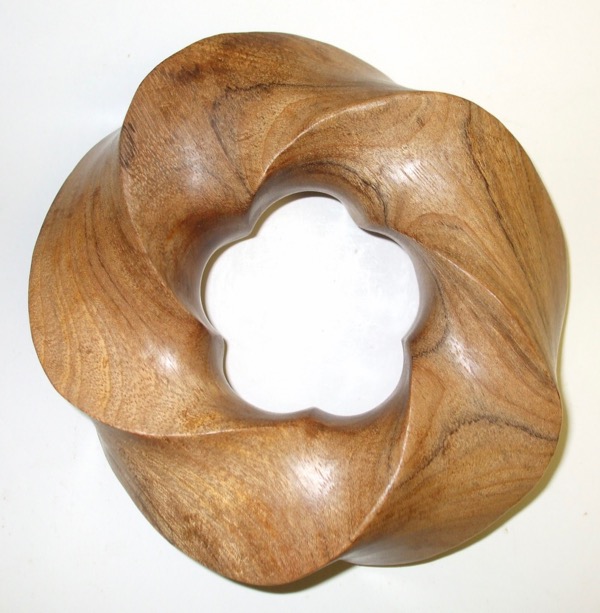
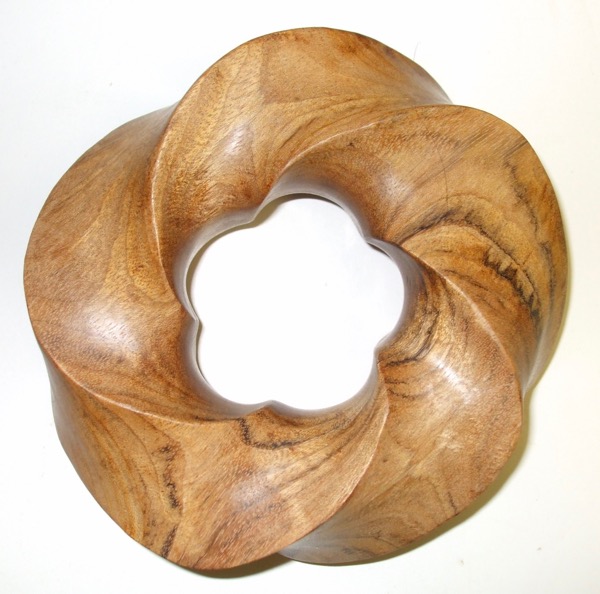
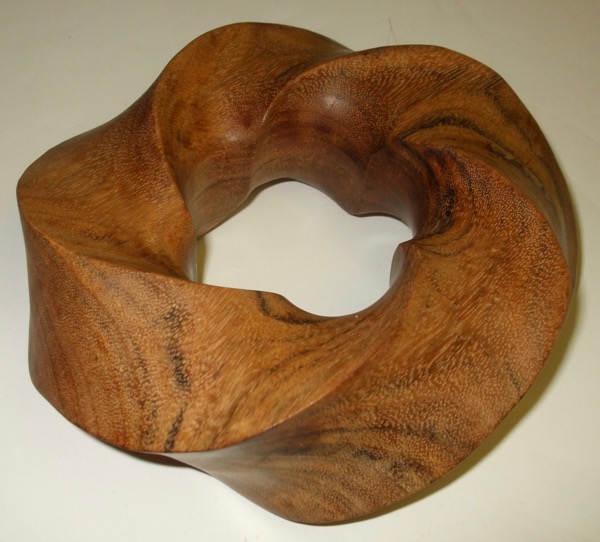
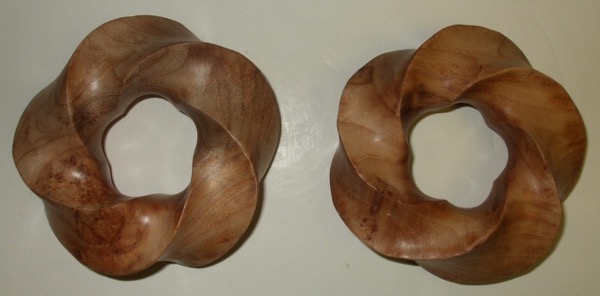
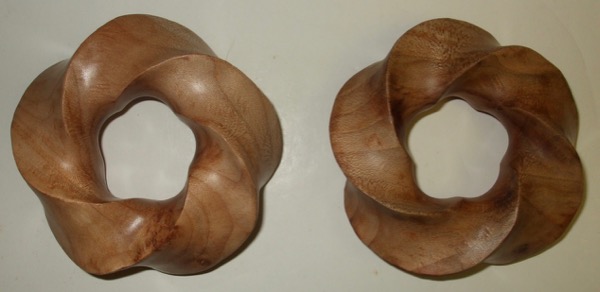
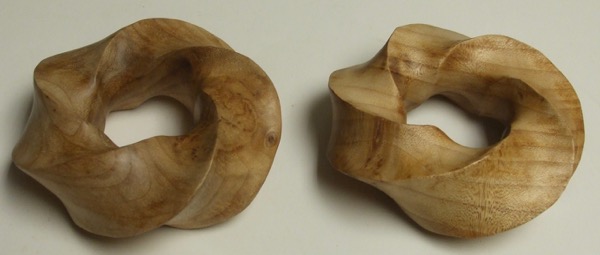
Here is a picture of a Tubular (3,5) Torus Knot pendant 3D printed in Transparent Acrylic material by Shapeways. I have had prints made in many different materials, but this is the first one I got in this material. It is interesting how the light shines through it.
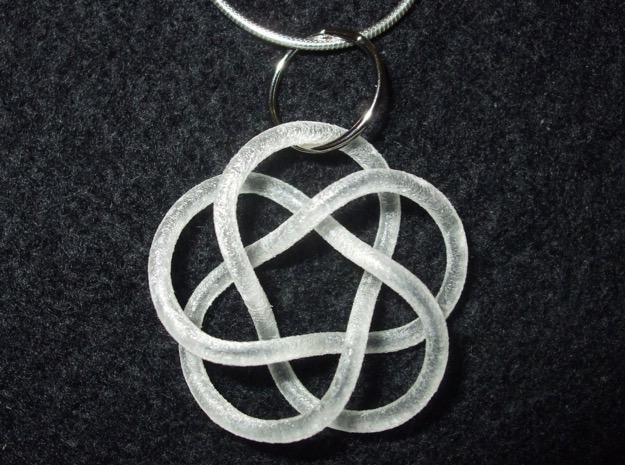
Here are five pictures of a wooden sculpture I completed on March 2, 2018. This is a Genus 3 Triple Link sculpture made from a 2"x8"x8" piece of Maple Ambrosia. In Fall 2017 I made a similar sculpture of Amazakoue wood about 6" in diameter, so this is only the second one of that design I have completed. As described before, this sculpture has three holes (genus 3) and the raised edges form three linked knots, each one passing through a pair of holes. Maple Ambrosia is a species of maple in which the ambrosia beetle has bored, making unique intrusions. The final picture is a closeup of the most visible such mark. The other pictures show the two sides, viewed from above and at an angle.
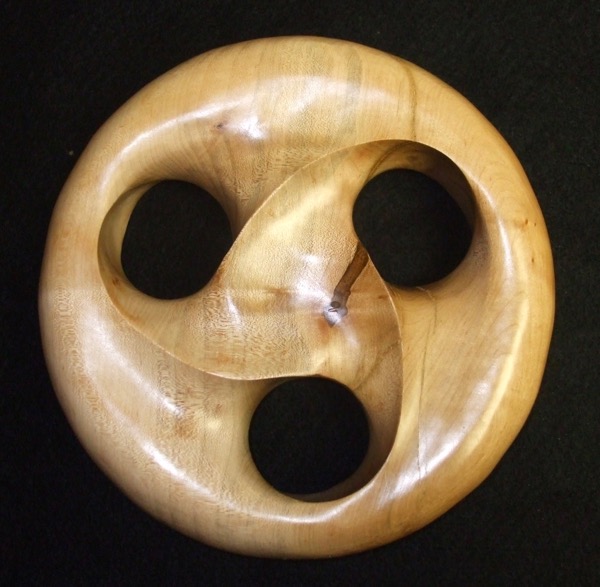
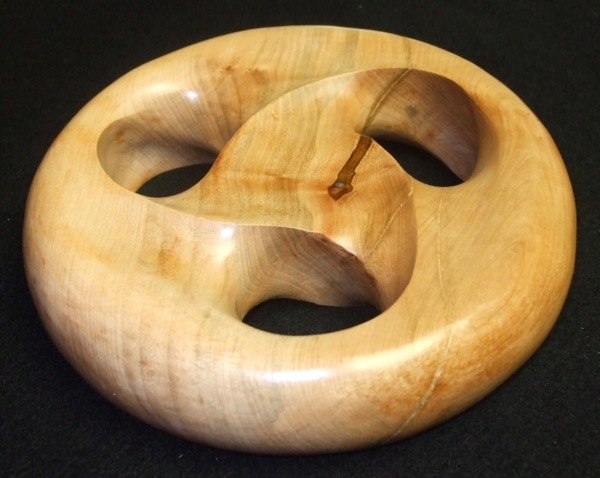
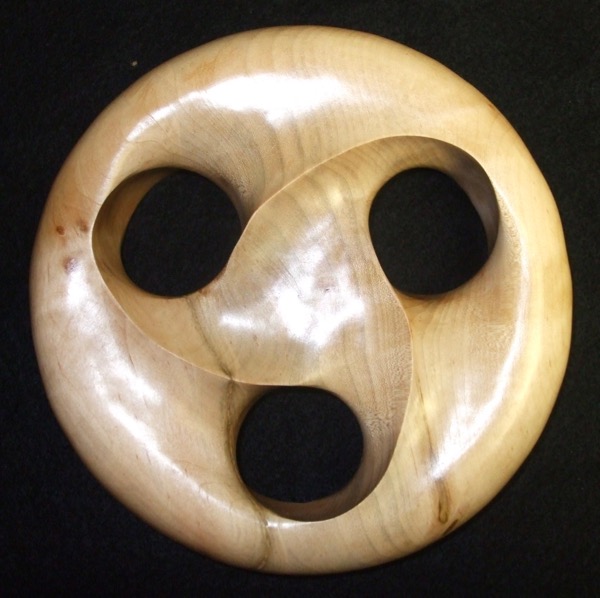
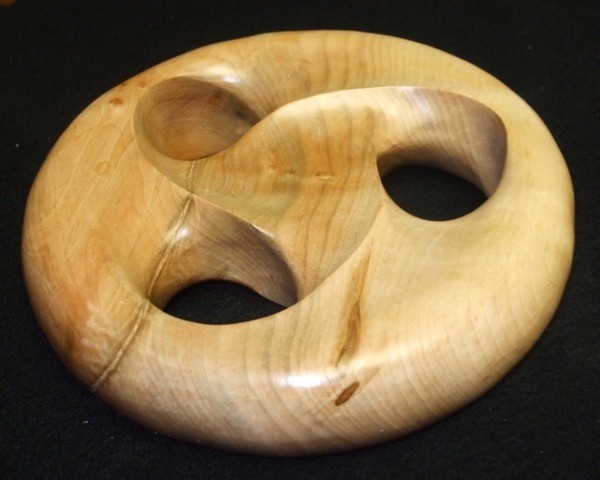
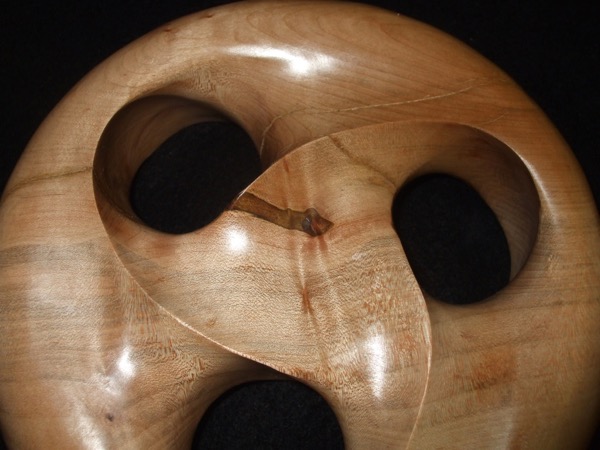
I salvaged some metal tubes from a discarded lawn chair and made from them a large tensegrity sculpture. A tensegrity (short for ``tensile integrity", probably invented by Kennith Snelson) is an object made of rigid rods which do not touch, but which are held in fixed positions by flexible cables. The geometrical arrangement of the rods and cables is such that any displacement of the position of any rod would stretch some cable. I have made some smaller ones before from wooden rods and some from steel rods. The mathematics of these objects has been extensively studied by Prof. Robert Connelly (Cornell University).
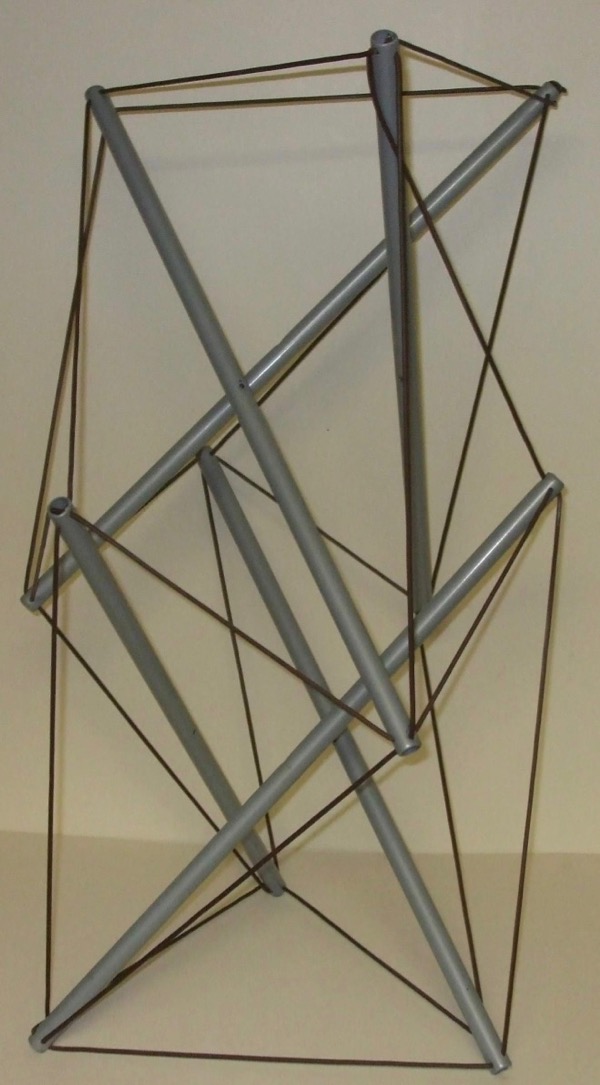
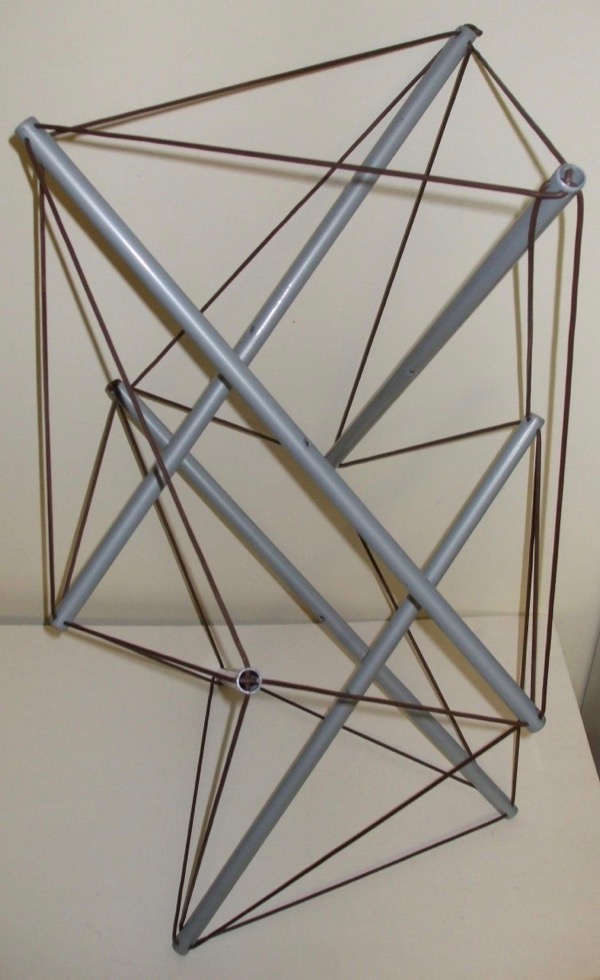
To see more types of sculpture I have tried, follow the following links:
Links back to:
Webpage of Alex Feingold,
Department of Mathematical Sciences,
Binghamton University.